More mills and farms globally are producing sugarcane in line with the highest sustainability standards, while market demand for certified sugar products has never been higher, according to data from the latest Bonsucro outcome report.
Bonsucro is the world’s largest voluntary sustainability standard that certifies sugarcane. The most recent figures reveal that, in 2021-22, Bonsucro-certified sugarcane represented approximately 6.5% of global production, reaching a volume of 120 million tonnes. The area of land used to grow this certified sugarcane increased by over 10% to reach 1.9 million hectares worldwide.
There was a big increase too in demand for certified sugar and other sugarcane-derived products. While much of the sugarcane produced according to the Bonsucro Production Standard is sold along with conventional sugar on global commodity markets, an increasing number of downstream brands are choosing to source certified sugarcane. In 2021-22, there was a 54% rise in the trade of Bonsucro-certified sugar, an increase of more than 1 million tonnes on the previous year.
Production and sales of certified ethanol and molasses also increased dramatically.
In India, Bonsucro continues to grow steadily. We now have 35 Indian members, making up over 10% of our total global membership of growers, mills, traders, brands and NGOs, all dedicated to advancing the sustainable production and use of sugarcane.
Although the total volume of certified sugar produced in India remains relatively low especially when compared to Brazil, one area where the country leads the way is in smallholder engagement. India has the most Bonsucro-certified smallholders in the world, with 9,347 smallholder farms supplying 10 certified mills during 2021-22. Nevertheless, this represents only a tiny fraction of the 6 million Indian smallholders who grow sugarcane. We know that smaller farmers face bigger barriers when it comes to improving sustainability, including a lack of information and financial resources – which is why we have developed a production standard specially designed to be more accessible for smallholder farmers. We also invest in projects to support smallholder certification through our Bonsucro Impact Fund.
While the increasing market demand for sustainable sugarcane and its derivatives provides a strong incentive to seek certification, our members’ experiences show that applying the Bonsucro Production Standard brings multiple benefits.
By following the best practices set out in our Production Standard, certified farms reduce their water consumption by 41% and their fertiliser use by 11% on average over five years, reducing input costs as well having a positive impact on the environment. Farms reduce their greenhouse gas emissions by an average of 17% over five years of certification, helping to mitigate the effects of climate change.
Certified producers also perform better on a range of social indicators – from paying workers well above the minimum wage to improving health and safety. One Indian operator that has been demonstrating what is possible is DCM Shriram. Over six years, the company has saved more than 735 billion litres of water, according to figures that have been independently verified by the Indian Institute of Sugarcane Research in Lucknow. To reduce water use in sugarcane production, DCM Shriram invested in new irrigation technologies, mulching, and laser land levelling (a water-saving technique that involves smoothing the land’s surface so water is absorbed more efficiently). The company also focused on increasing water supply by repairing ponds, recharging wells and building small, temporary check dams. As India faces increasing water scarcity, techniques like these are needed more than ever.
Another important issue in the Indian context is heat stress, as workers carry out strenuous activities in high temperatures. With extreme heat becoming more widespread as a result of climate change, we have been working with the Adelante Initiative to promote safe working protocols. Through training sessions and webinars, our members have learnt about the importance of water, rest, shade and sanitation to protect workers from heat-related illness and even death.
While we are proud of what our members have achieved so far, we know there is always room for improvement. Following a consultation with our members, we have recently updated our Production Standard, with the new version including more emphasis on protecting biodiversity and human rights. We held a training event in New Delhi in January to help producers understand our latest sustainability requirements, which we believe will lead to even better outcomes in the years to come.
We look forward to working with more farmers, mills, downstream users and other players across India to build a sugarcane sector that is good for people, good for the planet and fit for the future.
If you would like to find out more, please visit bonsucro.com.
Norma Tregurtha is Director of Engagements and Markets at Bonsucro

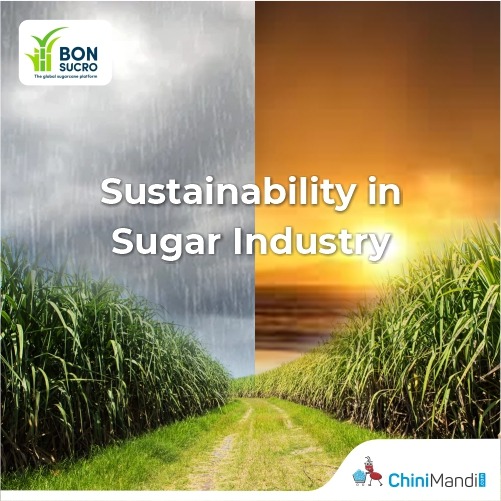

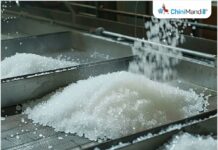
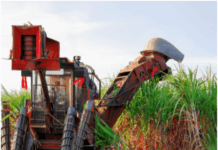

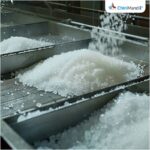
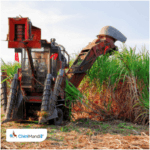





Very interesting and thats correct DCM Shriram
Is great I had been there last year and they have a good sustaiable work in their mill and agric areas.